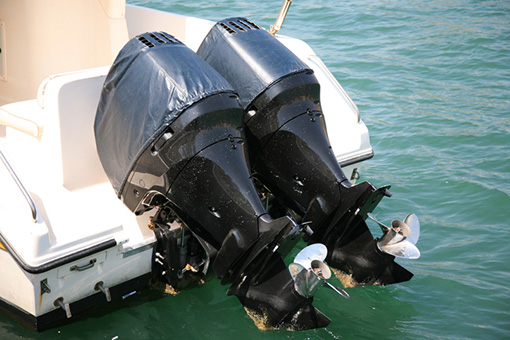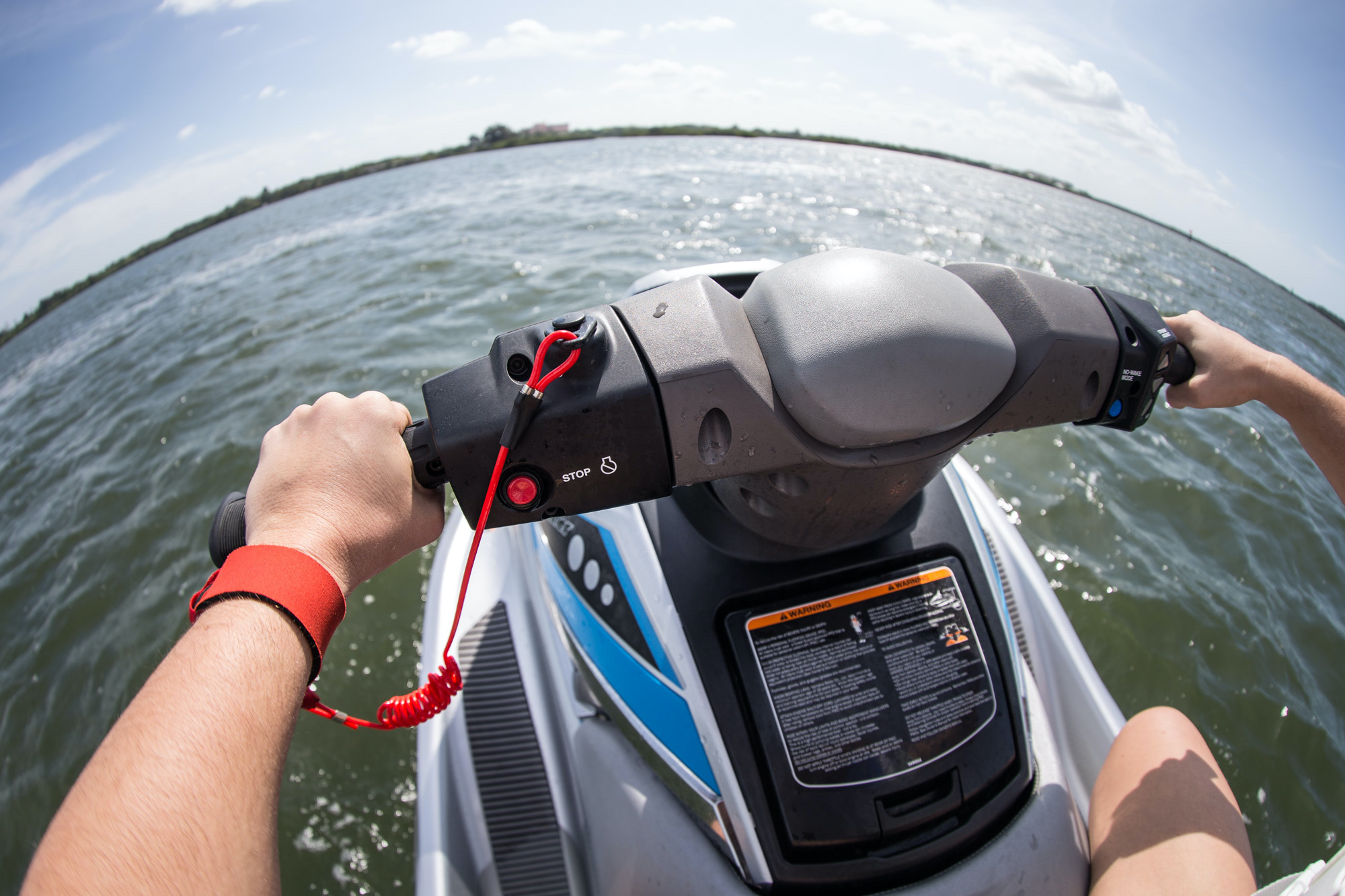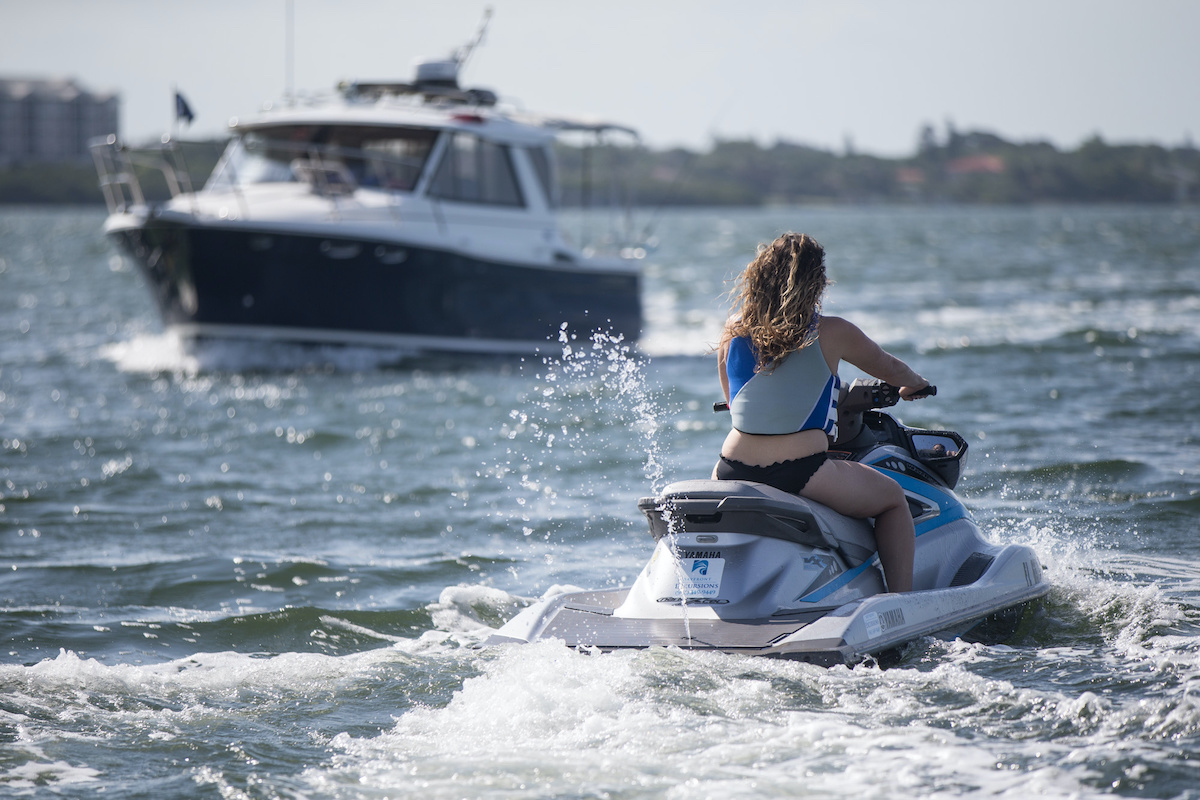If you're considering buying a used boat or wondering how long your current engine will last, one of the first numbers you'll want to check is the engine hours.
Like car mileage, boat engine hours offer insight into wear and tear, maintenance needs, and long-term performance.
But how many hours is a lot for a boat, and when should you consider repairs or upgrades? Let's review what engine hours are, why they matter, and how to check them.
What Are Boat Engine Hours?
Boat engine hours represent the total time an engine has run. Rather than counting distance like a car's odometer, boats track time. One hour is recorded for each full hour the engine runs, regardless of speed or RPM. Whether you're idling at the dock or cruising at full throttle, that time gets logged.
Some modern boats will differentiate engine hours by RPM range, which provides more context into how the boat was used. For example, an engine with mostly low RPM hours might have less wear than one used consistently at high speeds.
Why Should You Check Your Boat Engine Hours?
Knowing the hours on a boat engine helps you stay on top of maintenance and make informed decisions when buying, selling, or upgrading. It's one of the clearest indicators of how much life might be left in the engine or if it's time to invest in some repairs.
Tracking engine hours can help you:
- Schedule maintenance based on manufacturer recommendations
- Understand how hard the engine has worked
- Evaluate resale value or purchase cost
- Spot potential red flags before buying a used boat
Additionally, regular oil changes, fuel system checks, and cooling inspections are typically based on engine hours rather than calendar dates, so keeping an accurate count helps protect your investment.
Learn More About Boat Maintenance
How Many Hours Is a Lot for a Boat?
This is one of the most common questions among boaters. The answer depends on the engine type and how well it's been maintained. As a general guide:
Gasoline engines
Around 1,000 to 1,500 hours is considered the average lifespan. With excellent maintenance, some may run past 2,000 hours, but performance may start to decline.
Diesel engines
These are built for durability and can often last 5,000 hours or more, especially in larger boats with professional upkeep.
It's Not Just About The Number Of Hours
How hours were accumulated matters just as much as the hours themselves. A boat used gently and maintained regularly with 1,200 hours could be in better shape than one with 600 hours that's been neglected.
When thinking about how many hours is a lot for a boat, consider both the total engine hours and the maintenance history. Boats with consistent upkeep logs tend to age better, even with higher hours.
Ideal Lifespan and When Upgrades Are Needed
All engines wear out eventually, but proper care can delay that point. A well-kept engine will run reliably for years, often outlasting expectations. Some signs it might be time to think about upgrading or rebuilding your engine include:
- Noticeable drop in performance or acceleration
- Difficulty starting the engine
- Increased fuel consumption
- Visible smoke or unusual noise
Suppose your boat is approaching the typical hour range for its engine type. In that case, you should speak with a marine mechanic or dealer about potential upgrades or replacements to stay current with official boating safety guidelines.
An engine rebuild might be a cost-effective way to extend the life of the boat, while others may choose to repower with a new engine for better efficiency and reliability.
How to Check Your Engine Hours
Some boaters may be unsure of how to find out how many hours are on an engine. Whether you're on a newer model or working with older equipment, you can check the hours in a few ways:
1. Determine If Your Boat Tracks Engine Hours
Most modern boats, especially those with digital displays, automatically track engine hours. You will likely find this information easily through the onboard display or control panel if you have a newer model.
2. Locate Your Engine Hour Tracker on Your Boat
Look at your dashboard, multifunction display, or instrument panel. The engine hour meter might be a standalone analog gauge or a digital reading included with other stats like fuel levels and speed.
3. Consult a Trusted Boat Dealer
If you can't find the meter, a marine technician or dealer can help you locate it or pull the information using diagnostic tools. They may also provide a full report of how the engine has been used across various RPM ranges.
4. Check Your Analog Hour Meters (If the Boat is Older)
Older boats often have an hour meter near the engine or helm. These analog dials can be reliable but may stop working or reset if not maintained.
If your boat's previous owner has maintenance logs, compare the logged hours with the current reading to spot any inconsistencies.
5. Check Your Boat Manual for Recommended Maintenance Schedule
Your owner's manual should list the intervals for service based on engine hours. Keep that schedule in mind when checking your hour count to stay ahead of wear and avoid unexpected repairs.
Can You Reset Your Hour Meter?
Engine hour meters are designed to be permanent, meaning you generally cannot reset your hour meter. That helps preserve resale integrity and makes it harder to manipulate usage history.
However, the reading might reset in rare cases (such as an instrument panel replacement), so maintenance records are important when evaluating a boat.
If you're buying a used boat and the hours seem suspiciously low, ask for full maintenance logs and inspection history. A boat with an accurate hour meter and strong upkeep will always be a safer bet than one with gaps in its service timeline.
Bottom Line: Pay Attention to the Whole Picture
When understanding how many boat engine hours is a lot, context is everything. The total hours matter, but how the boat was used and maintained greatly affects its condition.
A boat with higher hours but a detailed maintenance history can still offer years of dependable use, while a lower-hour boat with poor upkeep might lead to costly repairs.
Keeping track of your hours on a boat engine is just as important. It helps you avoid issues, maximize performance, and protect your time on the water.
By staying informed, checking your engine hours regularly, and following recommended maintenance, you'll be in a better position to enjoy boating for years to come.


